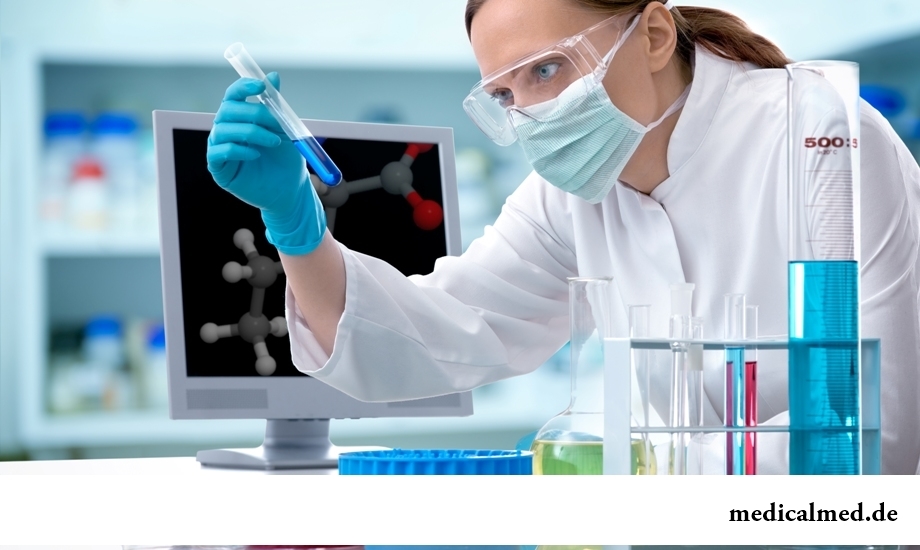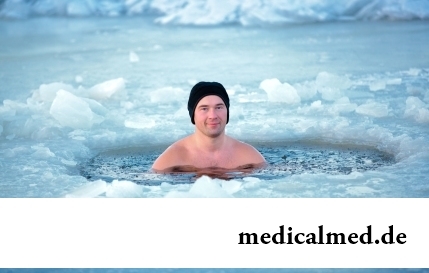





Bacteriologist
The bacteriologist – the specialist studying origins of infectious diseases, their antigenic, genetic and morphological properties. The bacteriologist investigates environment objects, materials of healthy and sick persons.

Stages of preparation of bacteriological crops
In a human body there lives the set of microorganisms, and both useful, and pathogenic. 99% of all bacteria are useful microorganisms – unselfish assistants to the person. They represent constant intestinal microflora. Generally it is bacteroids and bifidobacteria (90-98%). However there are also accompanying microorganisms – enterococci, colibacillus, lactobacilli (1-9% of total quantity of microorganisms). In certain conditions all bacteria, except bifidobacteria, are capable to cause various diseases.
Non-constant intestinal microflora is presented by opportunistic microorganisms – stafilokokka and various mushrooms. Their quantity and structure constantly change. For recognition of the causative agent of this or that infection the bacteriologist appoints certain laboratory analyses. The bacteriologist decides what to choose a way of laboratory researches in each case. Accuracy and correctness of the further diagnosis directly depends on correctness of the chosen tactics of researches.
Bacteriological crops are considered as the most widespread method of detection of a cause of illness. At the patient take so-called biomaterial – blood, urine, kcal, sperm and a secret of a prostate (from men), a secret of the cervical channel and a smear from a vagina (from women), saliva, allocations from a pharynx and a nose, liquor, a wound discharge.
Bacteriological crops are divided into the following types:
- research of biological material on sensitivity to antibiotics and flora;
- research on presence of mushrooms;
- crops on демодекс.
Biomaterial is located in special broth – a medium. In such crops there is a rough reproduction of microorganisms that considerably facilitates identification of a contagium.
By bacteriological methods the bacteriologist quite often investigates also so-called useful microbes of a digestive tract which take part in digestion process.
Fundamental obligations of the bacteriologist
The bacteriologist is obliged to know questions of private and general microbiology and epidemiology, mechanisms of immune responses, the doctrine of an infection. He has to understand well serological methods of a research, modern methods of microbiological diagnosis, the contents and sections of bacteriology, the main questions of clinic and a pathogeny of bacterial infections, and also the principles of planning of activity and the reporting of laboratory bacteriological services.
The bacteriologist also has to not only conduct bacteriological researches in connection with the professional duties assigned to him and and participate in studying and further implementation of modern methods of bacteriological laboratory researches and the equipment. Besides, the bacteriologist has to make recommendations for personnel of medical institutions.
The bacteriologist determines the volume and character of biomaterial for a research, and also terms of capture of material and terms of sampling. He organizes capture of biological material and its delivery in laboratory. The bacteriologist defines conditions of transportation and a way of storage of biomaterial for a research. Further the doctor conducts microscopic examination of the received material, and then defines expediency of use of this or that way or method of crops. After crops he studies quality and quantitative indices of the grown cultures. Marking out true cultures of bacteria, he chooses necessary tests for definition of their taxonomical situation.
The bacteriologist in the diagnostic purposes has to be able to identify easily patrimonial accessory of various microorganisms – shigellas, salmonellas, клебсиелл, protiums, hafnium, neysseriya, bacilli, pseudo-monads, korinebakteriya, micrococci, streptococci, stafilokokk, clostridiums, serration, Bordetellas, лептоспир, causative agents of vibriogenny diarrheas and especially dangerous infections.
According to the data obtained during the research the bacteriologist makes an antibiotikogramma, and further, on blood serum of the patient carries out reactions for identification of an antiserum capacity.
Having completed a material research, it performs its disinfecting then gives the reasonable answer and makes out registration and reporting medical documentation.
The bacteriologist has to be able to reproduce infectious processes on animals, to own various ways of immunization of experimental animals for the purpose of receiving specific antibodies and neutralization of toxins antitoxins.
Control over observance of the anti-epidemic mode and safety measures by younger and paramedical staff, and also carrying out sanitary and educational works among the population also belongs to the bacteriologist's duties.
So the doctor exercises control of provisions, makes sampling. By results of a research the bacteriologist makes the conclusion about a sanitary condition of the sold food stuffs and the room in which sale is carried out. The bacteriologist checks a sanitary condition of the people connected with products. He carries out washouts from stock, from hands, the equipment and a container. After carrying out a research the bacteriologist takes measures for possible discharge of workers of the trade sphere.
The doctor carries out control over all medical institutions, hairdressing salons, baths, manicure salons, the food markets, restaurants, children's milk kitchens, cafe, dining rooms, bars and other catering establishments.
On the basis of the gained knowledge the bacteriologist can conduct a bacteriological research of the centralized water supply, bathing swimming pools, reservoirs, sewage, and also air and the soil.
Except people, only one living being on the planet Earth – dogs suffers from prostatitis. Here really our most loyal friends.

Modern footwear is extremely various. It stopped being only protection for legs long ago. Today shoes, boots, barefoot persons in...
Section: Articles about health
About 10-15 years ago existence of the computer in the apartment of the Russian was considered as a rarity and office rooms were only at the first stage of equipment by these useful devices. Today practically in each house there is a computer (and often not one), and to constants...
Section: Articles about health
Each of us faces from time to time that other people need the immediate help. We react to it differently: one at once call doctors and police, others rush to victims and try to save them independently. Some pass by at all … Certainly, desire to help the neighbor who got into trouble, quite naturally for any decent person. However not everyone understands that to work in a similar situation, being guided by exclusively good...
Section: Articles about health
During foot walks blood moves on vessels more actively and one and all bodies are supplied with a large amount of oxygen. N...
Section: Slideshow
From sexual contacts each person can test insufficiently strongly expressed sexual desire or lack of satisfaction from time to time. However when it happens regularly, it is an occasion to think about health. Most of people does not hurry an obrashcha...
Section: Articles about health
The endocrine system carries out extremely important role in a human body, practically all processes of life activity are regulated by it. Closed glands (hemadens) produce special biologically active agents – hormones which then get to a blood channel and are transferred to bodies addressees, or as they are called still, to target organs. Frustration of this mechanism are fraught with development of serious chronic pathologies....
Section: Articles about health
The advantage of swimming for the person is so high that this sport is not only the most popular, but also is widely applied in copper...
Section: Slideshow
Such trouble as the milkwoman's attack, at least once in life happened almost to each woman. Prevalence of a disease is explained by the fact that the causative agent of an illness belongs to the so-called opportunistic microflora living on mucous an obol...
Section: Articles about health
The unpleasant feelings connected with spring breakdown are familiar almost to each of us. Often happens that in March-April on the person weakness leans: he suffers from drowsiness, complains of bad mood, loss of interest in life and failures in affairs....
Section: Articles about health
Sugar - the digestible refined product which is not of special value for an organism of the modern person. Use...
Section: Articles about health
What woman does not dream of a beautiful and thick hair? While physicians developed difficult schemes on hair transplant, in the industry of hairdresser's art a few years ago there was a sensation – methods of hair extension appeared. It would seem, dreams came true...
Section: Articles about health
Bees – really unique beings. Practically all products of their life activity are used by the person. Since the most ancient times medicinal properties of honey and other substances received in the course of beekeeping are known. The fact that all these products are recognized not only national, but also official medicine is especially significant. About influence and routes of administration of bee "drugs" the speech in this article will also go....
Section: Articles about health
All the known slogan "Protect Men!" arose not from scratch. In a sense, the nature created representatives of strong...
Section: Articles about health
It would seem, to buy drugs in Moscow does not make a problem – a drugstore, and not one, is available for each resident of the capital within walking distance. And, nevertheless, Internet drugstores become more popular – what it is possible to explain such phenomenon with? Actually m reasons...
Section: Articles about health
When overcomes feeling of hunger, and an opportunity to have dinner fully is absent, having a snack − the meals, small on volume, stabilizing sugar level in blood comes to the rescue. The relation of nutritionists to having a snack more often negative, but only because as snack people choose the most caloric products with the increased amount of "bystry" carbohydrates: cookies, rolls, chips, candies. Nevertheless, the advantage of having a snack is obvious to weight loss: the person avoids strong feeling of hunger...
Section: Articles about health
What they, women? Beautiful, gentle, passionate and at the same time windy, gusty, and nervous. And what is stranger: all эт...
Section: Articles about health
Producers of milk mixes for children assure: mixes are ideally balanced and adapted for needs of babies. If mother should raise artificially the kid owing to serious problems with health, to do nothing – m substitutes...
Section: Articles about health
One of the useful properties presented to the person by the nature is ability to feel fear. This ability is designed to signal about approach of a dangerous situation and to help to avoid in advance it to keep life. However if the fear is persuasive and is not reasonable, it can seriously limit possibilities of the person in respect of socialization and self-realization. Such pathological fear is called a phobia....
Section: Articles about health
Weakness of an ankle joint – very widespread problem. Its existence is demonstrated by tendency to a podvorachivaniye of legs п...
Section: Articles about health
Residents of big cities quite often have a disease which is known as the syndrome of chronic fatigue (SCF) today. This illness affects the people belonging to various social and demographic groups and living on all continents. Most of all SHU to a podverzha...
Section: Articles about health
The winter swimming in open reservoirs called in our country by "winter swimming" – officially recognized sport and one of the most extreme ways of a hardening of an organism. This occupation has an old story and adherents in many countries. The international competitions in winter heats on open water, and every two years – the World Cup are annually held. Despite huge popularity and the proved advantage for health, winter swimming is still surrounded with hardy delusions. Ра...
Section: Articles about health
Coffee - the tonic loved by many for the invigorating aroma and deep taste. Having the stimulating effect, coffee raises ра...
Section: Articles about health
Phobia – the persuasive fear of a certain contents shown in a specific situation against the will of the person. Concepts of a phobia and fear are similar, however if the fear is natural protective function of mentality, then the phobia is its deviation. So the person can an ispytyva...
Section: Articles about health
Use of medicinal plants in therapy is urgent today, more than ever. The drugs made of curative herbs cannot replace completely modern synthetic drugs, but their use becomes frequent serious help in simplification of a course of many illnesses and improvement of quality of life of chronic patients....
Section: Articles about health
Work of a brain is extremely complex and in many respects is not studied yet. It is confirmed also by the features of thought processes which are shown in...
Section: Articles about health
Good appetite was always considered as a sign of good health. The correct operation of the mechanism which is responsible for the need for nutrients and receiving pleasure from process of its satisfaction demonstrates that the organism functions without special from...
Section: Articles about health
It would seem, about it there can be no disagreements: water is necessary for a human body for normal life activity, and about how and when it should be drunk, all know. It turned out that the situation is not absolutely so: for many years there are very persistent delusions connected with this question. Let's consider the most widespread of them....
Section: Articles about health
